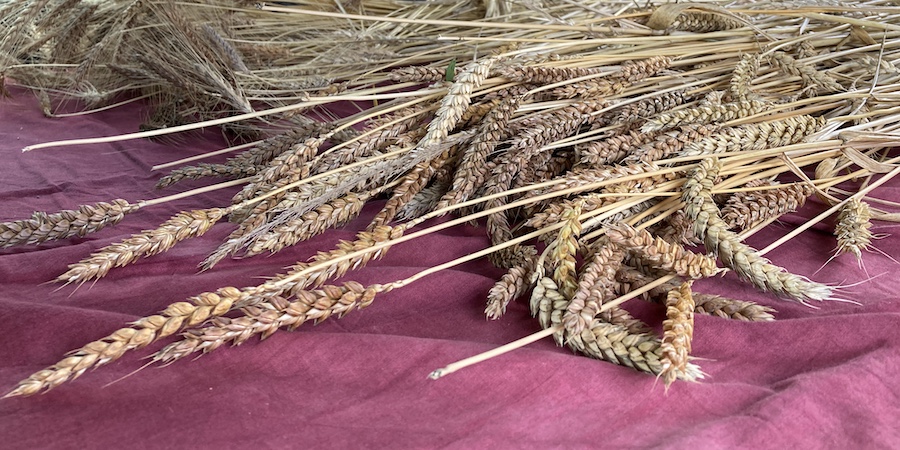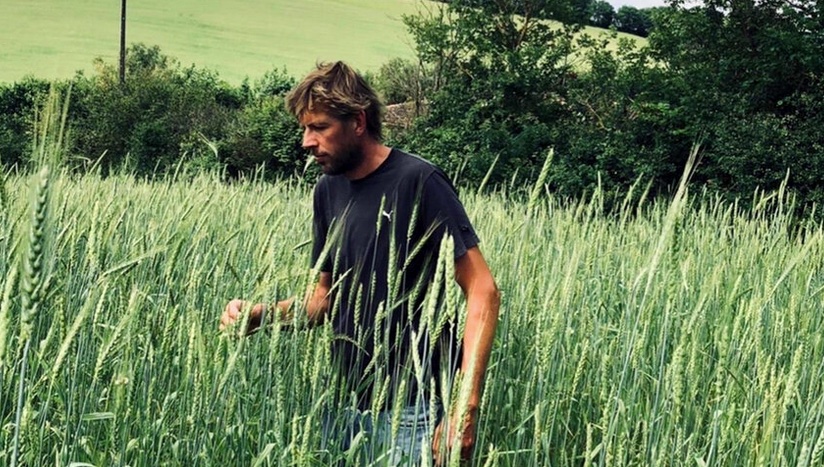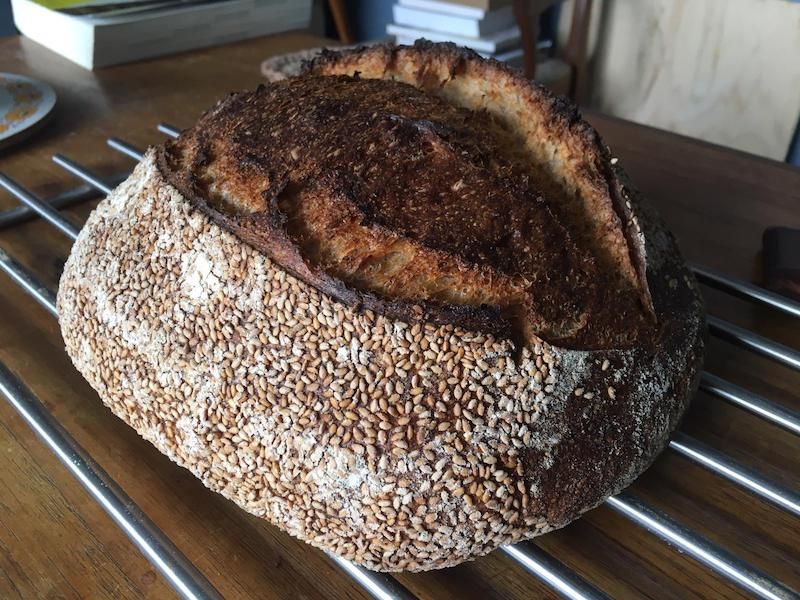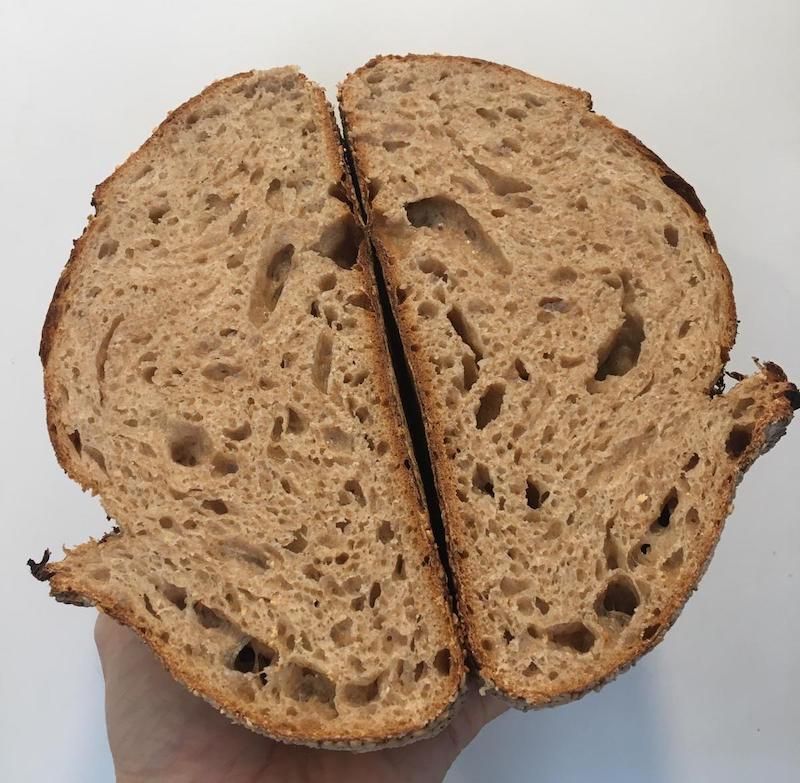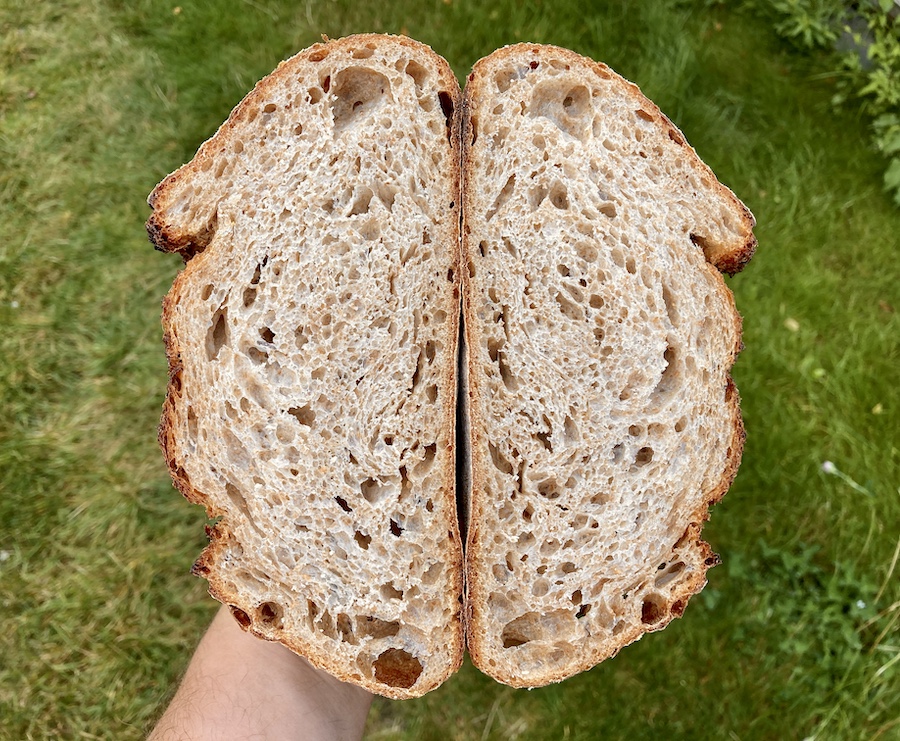
Over the last fortnight you might have seen some ‘heritage grain’ sourdough and baguettes on the shelves at Loaf. This is part of a long-term project we’ve been working on to become part of the local grain economy, and we’d like to explain what that all means.
Heritage grain is a broad term. It can be understood as grain from wheat that is not popularly farmed in the modern era, the baking industry having consolidated around a small number of grain varieties.
For the baker, heritage grains can be fun to work with, behaving differently as dough and producing flavours not usually found in standard breads. Sometimes the difference is subtle, sometimes it’s dramatic. It’s wheat, but not as you’ve come to know it.
While there’s nothing to stop heritage wheat being produced on an industrial scale, it tends to be grown by smaller farmers in lower yields. The local grain economy (explored in-depth in the six-part Cereal podcast from Farmarama) is a movement to connect these farms with bakers to create a sustainable market for these grains. At Loaf we feel we’re perfectly positioned to be part of this, being an urban bakery with many growers in the surrounding countryside.
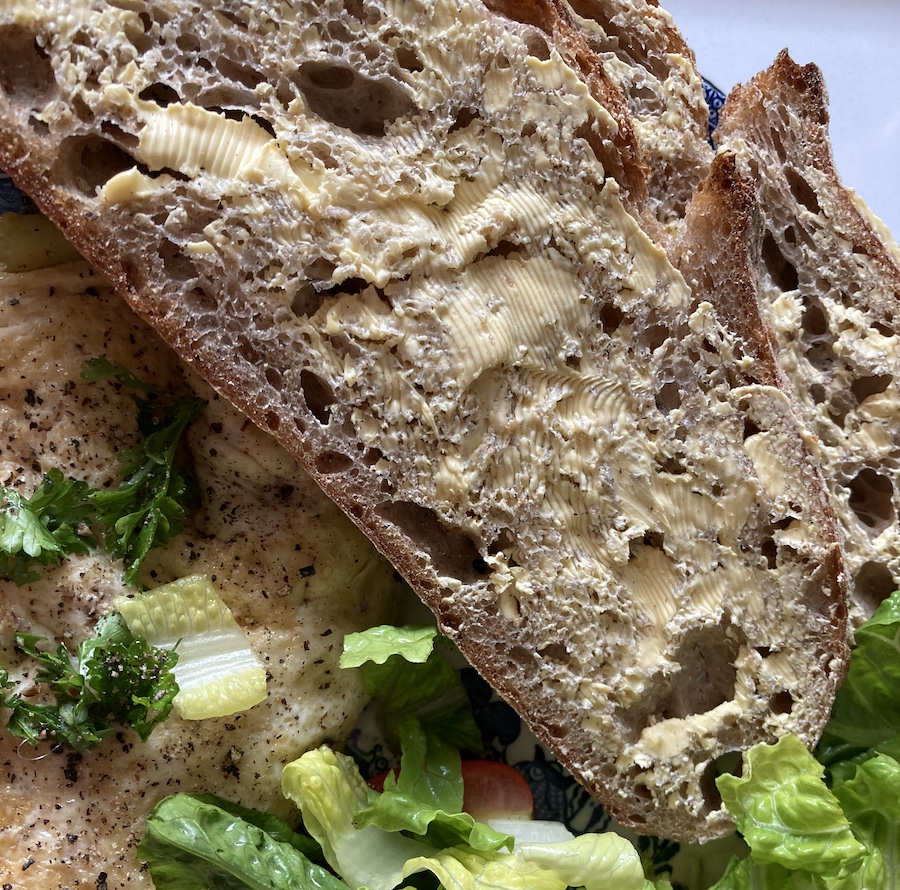
During his furlough in January, and inspired by Cereal, Phil began making contact with local farmers and this month milled a couple of varieties for the shop.
Last Thursday and this Wednesday we had a sourdough milled from Mulika wheat grain from Greenacres farm in Shropshire, one of the pioneers of heritage grain in the UK. It has quite a deep malty flavour with a slightly sour tang and we’re keen for it to become a regular on our shelves as feedback has been great.
This week we also had some baguettes made with flour from Wildfarmed, a really interesting venture which was featured in a previous newsletter. Initial results were good but we want to spend more time with it. If you picked one up on Wednesday, please let us know what you thought.
Off to Somerset!
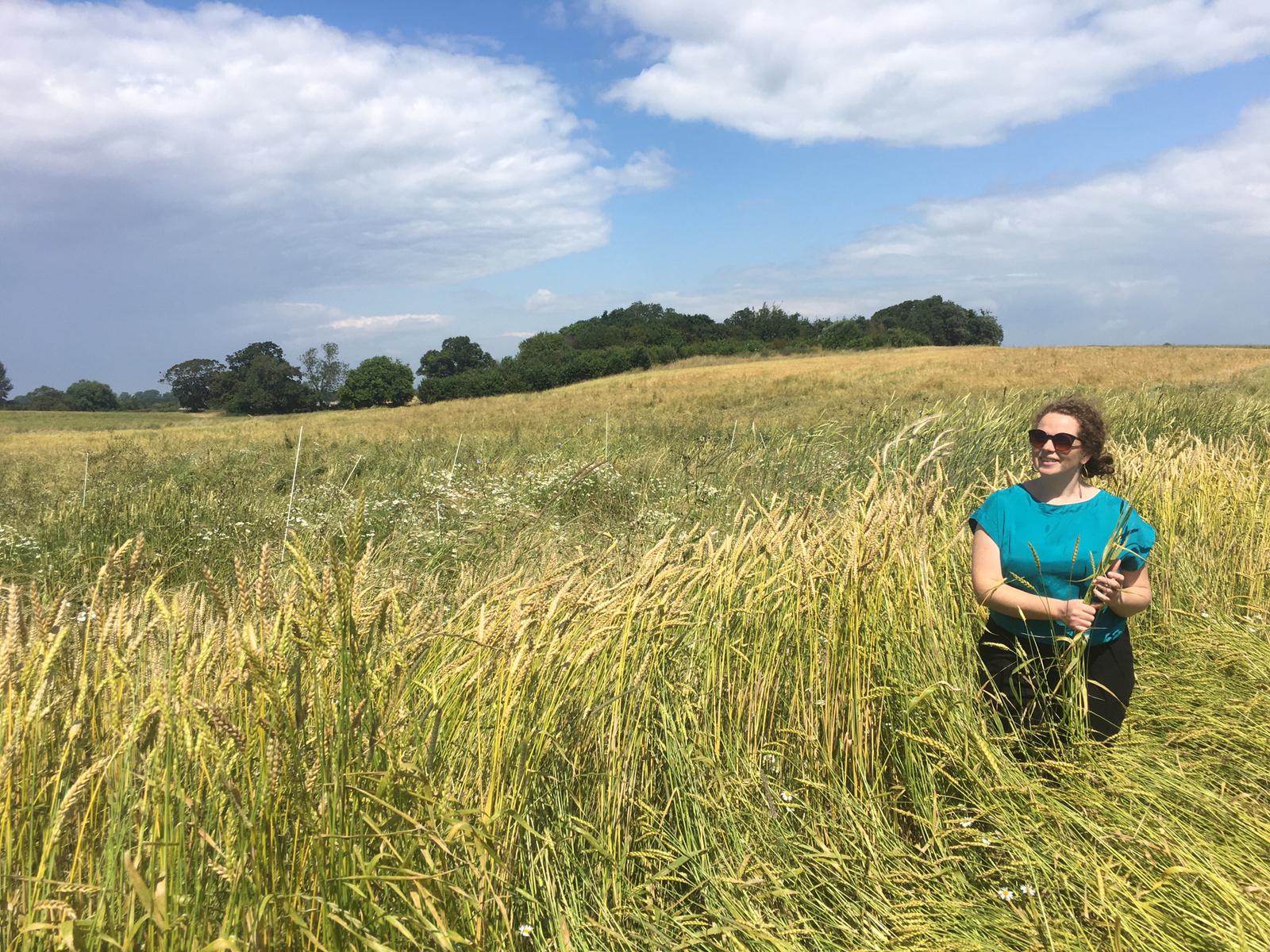
Phil’s enthusiasm infected the whole baking crew and when the opportunity arose to block-book the Advanced Sourdough Using Regional Grains workshop at Field Bakery, we jumped at the chance.
Field is a bakery set up by Rosy Benson on Gothelney Farm in the Quantock region of Somerset, a family farm transitioning to an agroecological model. While baking for the local community they’re also keen to build a network of environmentally aware bakers working with sustainable grains.
The course covered a multitude. Naturally we got to work with the wheat varieties, learning how to get the best of out them in the bakery. For example, they don’t perform like modern wheats, tending to be more delicate. Every variety is different so you need to be both attentive and reactive to the process, taking a bit more care as you guide it through fermentation.
There was also a detailed tour of the fields, which offered the bakers a rare chance to see where their raw material comes from. And there were pigs!
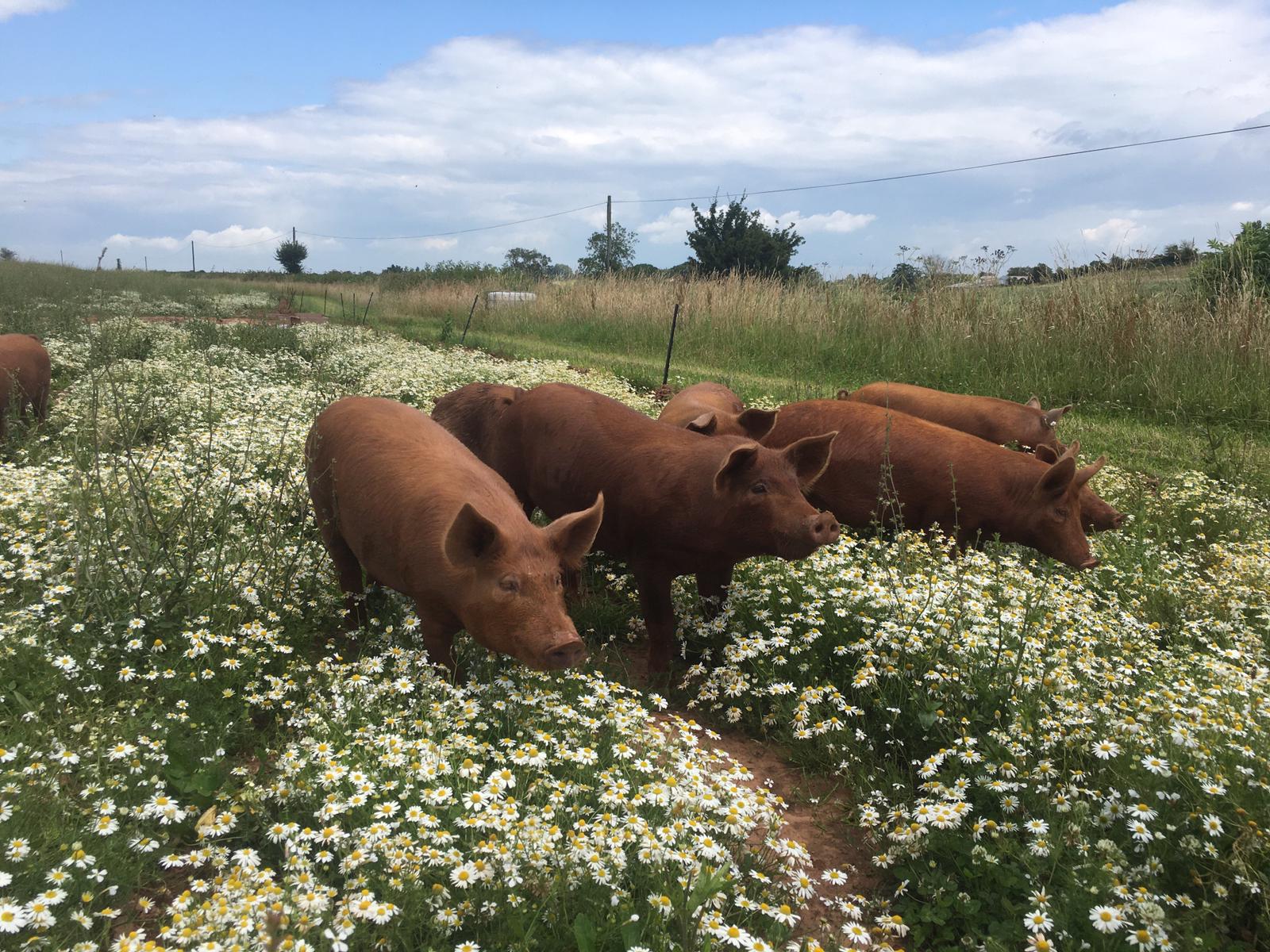
This is all contextualised by Gothelney and Field’s involvement with the South West Grain Network of farms, mills and bakeries from Bristol to Land’s End, working towards the goal of an alternative grain economy.
We left tired but inspired and keen to help build something similar here in the Midlands.
More than a flavour
While these heritage grains taste great, it’s important to remember this is about much more.
A local grain economy supports farmers and bakers who cannot compete with large agribusiness and reduces transportation distances.
A wider variety of grain is more sustainable in a changing climate and creates a stronger biodiversity.
Finally, by growing this sector we can make these grains affordable to more people.
As a co-operative and a community bakery, we strongly feel that heritage grain is something we should be involved in. We will be spending the next year or so exploring this world, seeing how we can fold it into our values and principles. This need not be an exclusive, expensive luxury — many of these grains were historically the staple diet of ordinary people. We want to see if they can be again.
Meanwhile, on Dale’s allotment
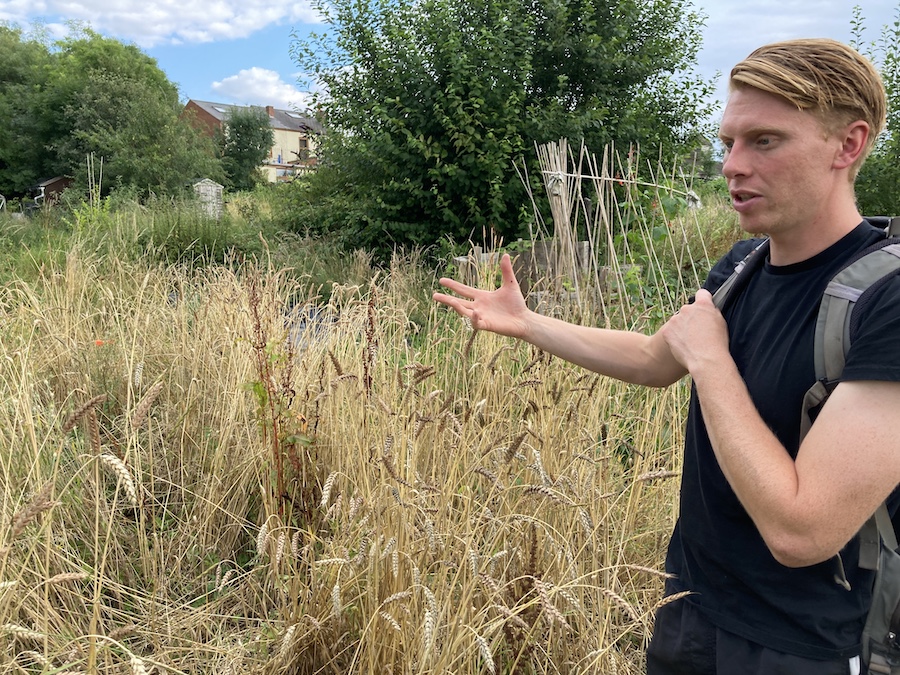
Some of you will know Dale Hipkiss: member of Artefact, half of artist duo Hipkiss & Graney and ecological campaigner. Dale has long been a friend of Loaf, and for the last five years has been experimenting with heritage grains.
He started with a selection requested from the John Innes Centre, a gene bank in Norwich that stores “germplasm core collections which represent the global natural variation of highly important cultivated species and their wild relatives.”
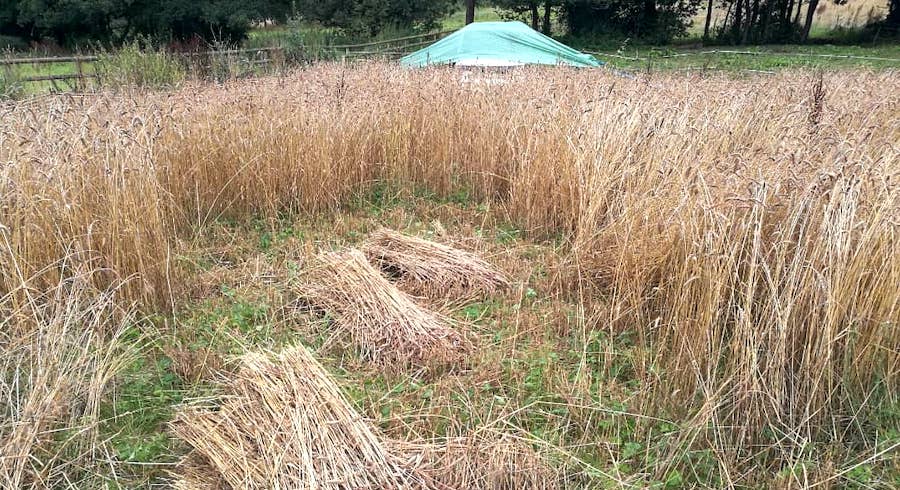
Dale planted these on his allotment in Stirchley in 2016, replanting and bulking them out to see which grow best in this climate. He expanded to a corner of a field in Henley (pictured above) and this year is taking on another half an acre.
His long-term plan is to acquire some land so he can autonomously develop a farming system better suited to adapting to climate change. And, of course, he wants to turn his grain into food.
It’s safe to say, you’ll one day be be able to buy a Hipkiss loaf from us, made from flour that started its journey in an allotment in Stirchley. It doesn’t get more local than that!
